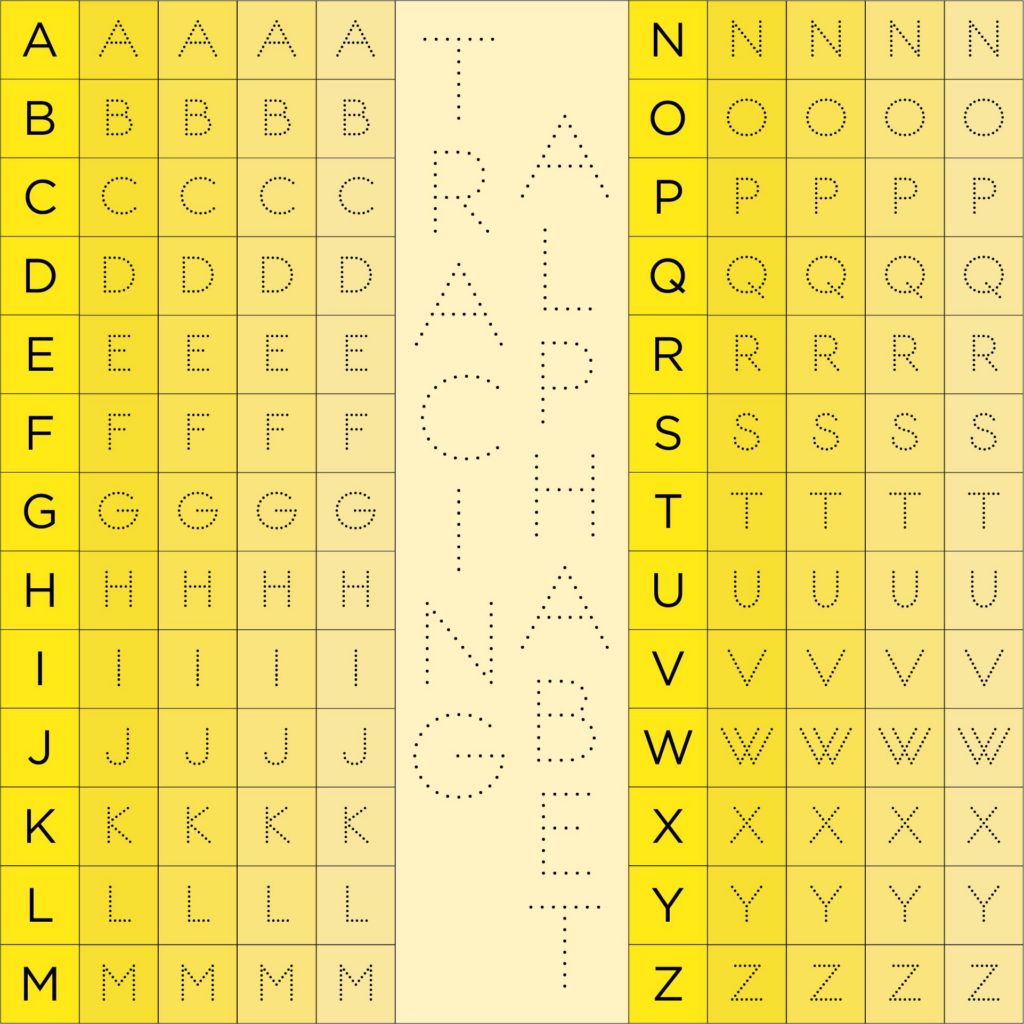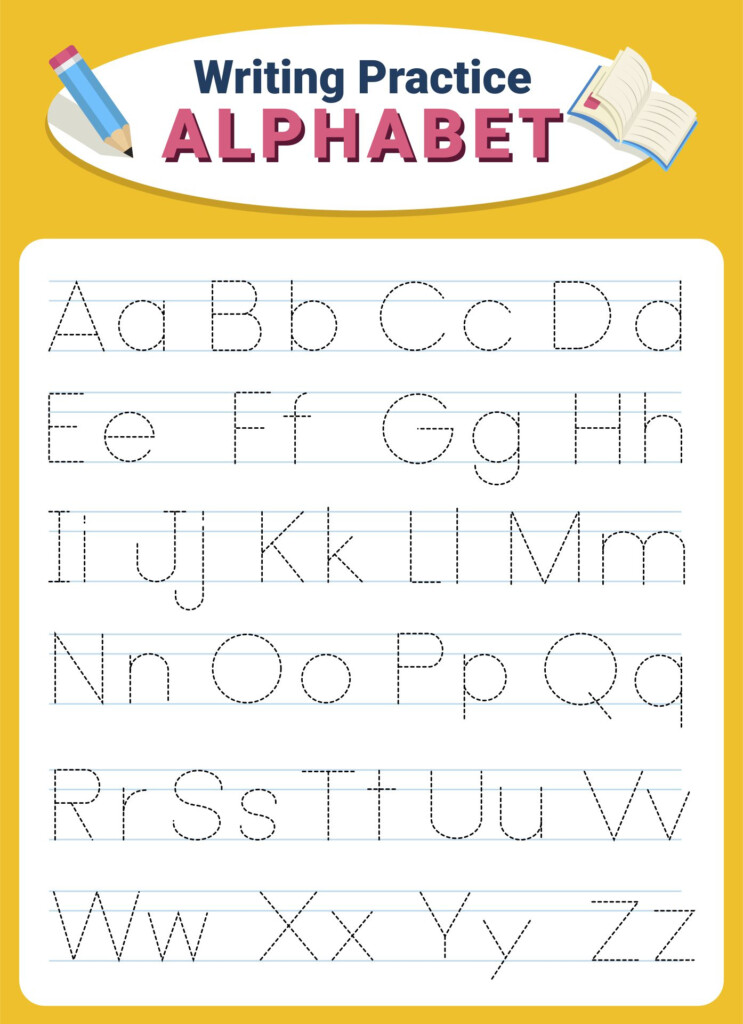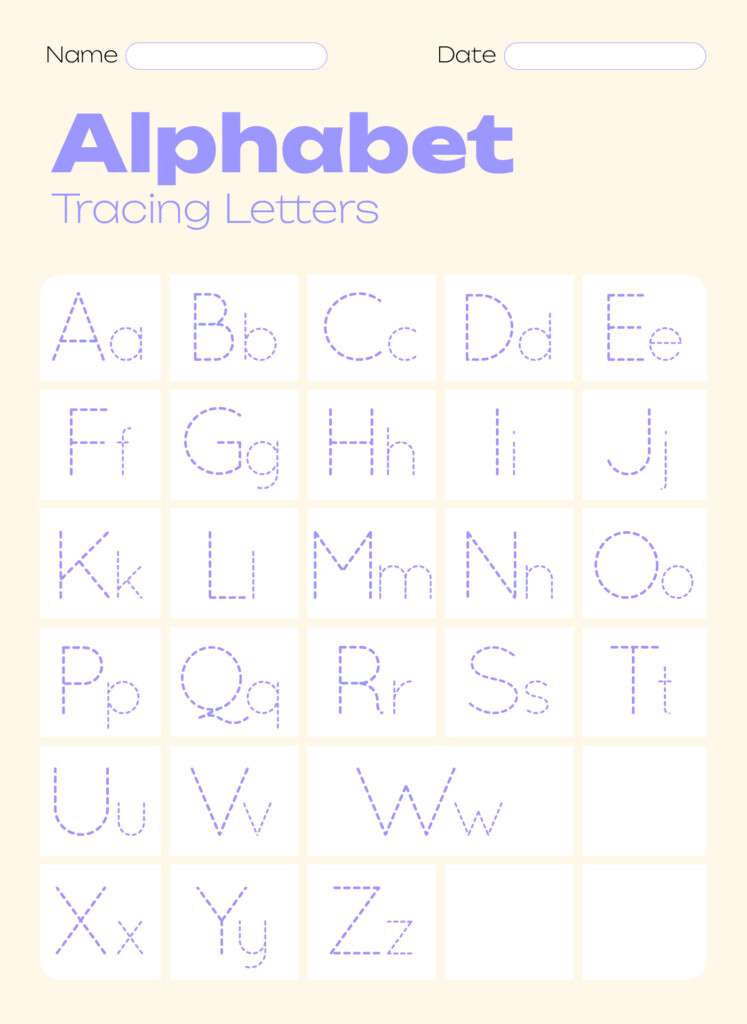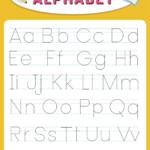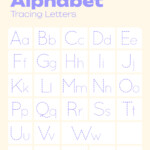Letter Tracing – The development of motor skills as well as early literacy are dependent on the process of tracing letters. This article will discuss the idea of letter tracing. Its importance to early education is emphasized as well as ways parents can encourage this process.
What is Letter Tracing?
The act of tracing letters is using a writing instrument typically a pencil or a finger, to trace the letter shapes. This is the initial step in learning how to write letters and numbers. It is a good base for literacy development in the early years.
What’s the purpose of tracing letters?
Writing is not just an educational milestone – it’s an expression of self and communication. Letter tracing is an effective tool. This helps children become familiar with the shape and structure of the alphabet. This helps their comprehension and recognition.
- The Benefits of Letter Tracing
Besides literacy skills, letter tracing provides numerous benefits. It improves hand-eye coordination and fine motor coordination. It increases concentration, improves cognitive and promotes development. Moreover, it offers the feeling of accomplishment and confidence as children learn to write on their own.
The importance of letter tracing for early education
Letter tracing is an excellent method to develop reading and writing skills in early education. This isn’t just about reproducing letter forms. It’s about knowing how the sounds of letters work together to form words and phrases.
Learning to trace letters and increase the cognitive abilities
The brain’s motor and visual areas are stimulated by letter tracing. It helps improve cognitive development because it helps children to learn patterns of shapes, as well as how to connect their perceptions and actions. It’s similar to solving a maze – every piece of paper or letter has significance.
Fine Motor Skills are developed through the use of letter tracing
It is essential to possess good motor skills to perform daily activities. It is important to strengthen hand muscles through letter trace.
Effective Letter Tracing Techniques
Each approach to letter tracing has its own advantages. The use of your fingers to trace or using a pencil stylus are two common methods.
Fingers are used to trace
This is the initial step in tracing letters. It’s a great exercise that lets youngsters to feel and experience the shapes of letters.
Tracing with a Stylus or Pencil
As they grow older and become more independent, they will be able to move away from finger tracing and will use pencils. This provides children with a more authentic writing experience and prepares the for formal school education.
- Digital Tracing in contrast to. Tracing on Paper
Although traditional paper-based tracing provides the tactile experience, digital tracing on tablets and smartphones also has its advantages. It’s convenient, engaging and green. However, a combination of both approaches can be the most useful.
How Parents Can Support Letter Tracing at Home
To allow children to learn how to learn, parents need to be in a positive way. Here are a few ways parents can promote letters tracing within their home.
Pick the right tool
Make sure your child is using the correct writing tools for his age. The most effective tools for writing youngsters are chunky, coloured pencils or fingerpaints. As your child develops it is possible to introduce styluses and pencils.
How to create an environment that encourages learning
A serene, comfortable and peaceful environment without distractions can help your child concentration and perseverance. Make a separate space where your child can practice the art of letter tracing.
Click here to read the complete article
Early education is not enough without the ability to trace letters. It not only promotes literacy, but also cognition and fine-motor abilities. Understanding its importance and supporting your children’s learning can have an effect on their child’s learning journey.
FAQs
- Q. What exactly is letter-tracing?
- Tracing letters requires using a writing tool to trace the form of the letters. It’s a fundamental step to learning how to write.
- Q What is the significance of letter tracing?
- A: Tracing letters is a great way to build the ability to read and develop cognitive skills. It also improves fine motor skills. It’s an essential step to learning to read and spell.
- Q. What are some ways parents can support letters tracing in their homes?
- Parents can encourage the practice of letter tracing at home by providing suitable writing tools and a conducive learning environment. Parents can involve their children in engaging activities like tracing.
- Q What are the advantages of letter tracing?
- The benefits of letter-tracing include better hand-eye cooperation and fine motor skills, concentration, cognition, as well as a feeling of accomplishment as children learn how to write independently.
- Both are equally effective. While paper-based tracer provides a tactile feel while digital tracer is more interactive and eco-friendly. It is possible to mix both methods.

